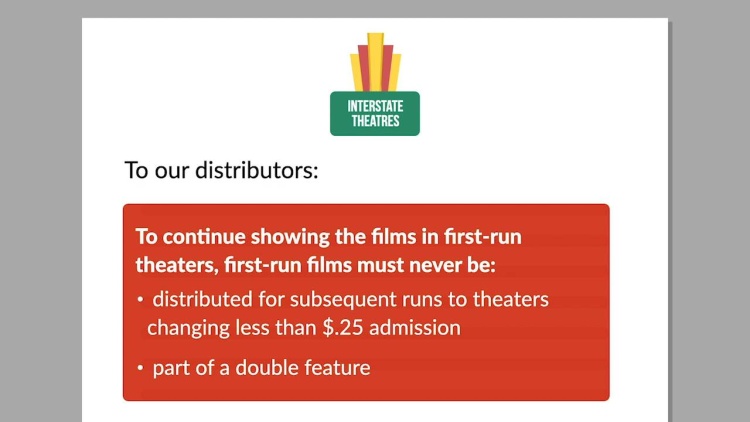Interstate Circuit, Inc. v. United States
United States Supreme Court
306 U.S. 208, 59 S. Ct. 467, 83 L.Ed. 610 (1939)
- Written by Craig Conway, LLM
Facts
Interstate Circuit, Inc. (Interstate) (defendant) and Texas Consolidated Theaters (Consolidated) were movie-theater companies that dominated the market for showing films in various Texas cities. Interstate and Consolidated entered into agreements with eight independent companies that distributed 75 percent of all first-run films to U.S. theaters. The agreements specified the terms on which the theaters owned by Interstate and Consolidated would show the films. A letter written by O’Donnell, Interstate’s manager, made two demands as a condition of Interstate’s continued agreement to show a particular distributor’s films: (1) that the distributor agree that on subsequent runs it would not permit its films to be shown in theaters charging an admission price of less than 25 cents and (2) that the distributor agree not to permit its first-run films to be shown on a double-bill with another feature film. O’Donnell’s letter to each distributor listed all of the distributors who were receiving the document. Subsequently, each distributor agreed with O’Donnell’s demands. The trial court found that the distributors had agreed and conspired with one another to take uniform action with respect to O’Donnell’s demands and thus violated § 1 of the Sherman Act. Interstate appealed to the United States Supreme Court from the trial court's final decree.
Rule of Law
Issue
Holding and Reasoning (Stone, J.)
What to do next…
Here's why 904,000 law students have relied on our case briefs:
- Written by law professors and practitioners, not other law students. 47,100 briefs, keyed to 995 casebooks. Top-notch customer support.
- The right amount of information, includes the facts, issues, rule of law, holding and reasoning, and any concurrences and dissents.
- Access in your classes, works on your mobile and tablet. Massive library of related video lessons and high quality multiple-choice questions.
- Easy to use, uniform format for every case brief. Written in plain English, not in legalese. Our briefs summarize and simplify; they don’t just repeat the court’s language.







